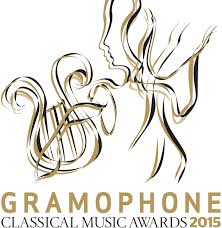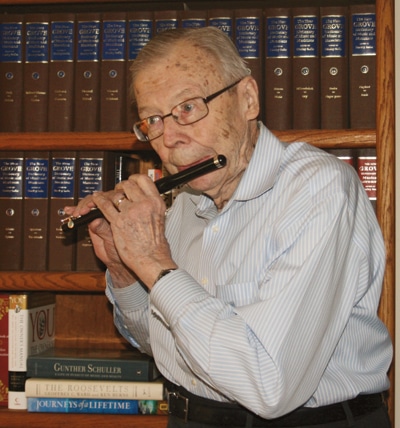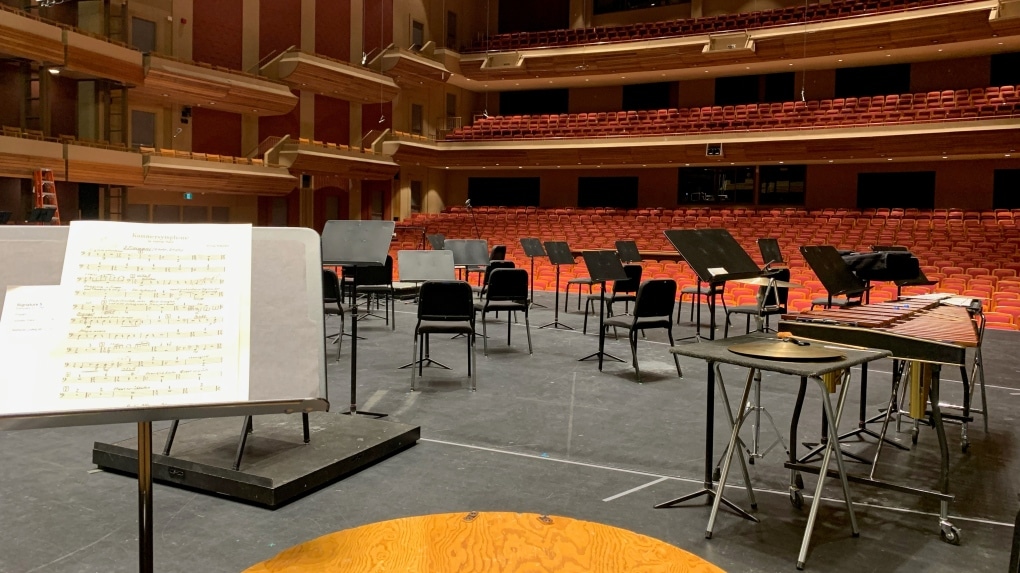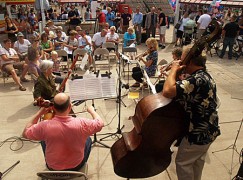Gramophone signs a death certificate
mainSlipped Disc editorial:
The award of Recording of the Year to Claudio Abbado, who died before the year began in January 2014, exposes much that has gone madly wrong with the classical music industry.
Abbado, 80 when he died, was much loved and admired. But to acclaim his valedictory concert as superior to the work of every surviving artist and orchestra is to imply that classical recording itself has died, with the death certificate signed by its tunnel-visioned parish magazine.
To living artists, this award by Gramophone and its regular critics is an insult. To the dead, an unearned tribute.
The classical music industry, like a wacky religious cult, worships the dead. No wonder it’s in a hole.

Time to stop digging.






Well said, Norman. I’ve never understood the never-ending eulogies and drooling about this particular artist. Even when he was alive I never felt that his recordings were a cut above the pack. Never mind the stories I heard about how much less of a saint he was than some people now believe.
I think you’re probably right. It’s one thing to cherish performances and recordings from the past, but something else to award ‘disc of the year’ to an artist who died a while ago. It really isn’t very forward-looking. But I’m sure it’s good for sales…
(Let’s ignore, for the moment, the question of whether a recording of the year is appropriate. That’s the nature of the game, from the Booker prize to the Tchaikovsky competition. Not very nuanced, though, is it, and the arts are about subtlety, nuance, different but valid interpretations, and enjoying being challenged by new thoughts.)
“Tunnel-visioned parish magazine”? I think that says more about the author than the magazine!
Who takes these awards seriously anyway? If, as a music-lover, you seek or need external validation (from people with most likely very different tastes and preferences) in order to enjoy a recorded music performance, more’s the pity. To quote composer Bela Bartok, ‘Competitions are for horses, not artists’
Quite right, on a rather grander scale Nobel Prizes can’t be posthumous-I am seeing the Photograph 51 tomorrow which touches on just that. This is clearly a marketing exercise, in any year. Perfectly reasonable to have prizes for chamber or vocal etc , and list 5 nominees, but what is Recording of the Year meant to convey?
I don’t understand the logic underneath this editorial.
1) Abbado was not the only person involved in that recording, many of the members of the Lucerne Festival Orchestra, the producers and engineers that took part creating that recording are still alive and probably very happy about the prize.
2) The fact that the artists that created a recording are dead doesn’t make a difference to the quality of the recording. If the recording was published in 2014/15 and it is superior to other recordings published in the same period, then it makes sense that it is chosen as the recording of the year.
3) The industry is changing and has nothing to do with the industry that Mr Lebrecht once knew and understood, but it’s still very alive and producing great recordings, concerts, festivals, websites, twitter threads and many other cultural manifestations, which were not even conceivable a couple of decades ago.
If somebody is signing a death certificate it is slippedisc with this editorial line, which denies the new reality, paradoxically using the means of that same new world it is neglecting.
I was going to drop a comment, but you laid everything out so perfectly that I”ll just second your post. Nicely done.
I second, too.
This is quite an amazing statement where, given there’s new forms of communication, if you actually use them to point something out, you’re actually adding to whatever negative is going on.
Thus, if Norman wouldn’t point out (on the Internet) how many orchestras and opera houses are folding, this wouldn’t be going on. Or the rest of the decline. Let alone the lack of true funding for creativity. If you examined the amount of money put into maintaining celebrity status and personality cults for those exploiting the music of at least 80% dead composers; and compared this to the bleak amount going into anyone actually being supported as a live composer, then modulated these statistics into the time periods where at least 80% of the music comes from – and it probably couldn’t be that the percentage is MUCH higher than 80% – you wouldn’t even have the resource (of conveniently dead composers) that’s being leveraged to such a degree it’s only a miracle to music that it hasn’t disappeared completely.
Or if one points out the lack of creativity, and how a person not playing the game can’t make it in corporate media anymore in a wider spectrum than just classical music, this again is ruining the whole industry. For who exactly is this ruining the whole industry when it’s pointed out what’s going on?
I agree with Jon. The recording appeared commercially within the “eligible period”, and that’s what matters to this exercise. With this not being a soloist award, the credit goes to the entire orchestra. The fact that Claudio Abbado unfortunately passed away shouldn’t disqualify the recording. Next year there will most likely again be a recording by a living artist, so I wouldn’t make this any bigger than it is.
In my very personal view the quality of recordings has gone down over the past decades but at the same time there are some outstanding new ones around as well. Obviously the passing of time filters out the insignificant ones and leaves behind the important ones, so today’s mixture of recordings will be biased by that.
It’s a prize for recordings: not live performances. Recording gets released for the first time this year – it’s eligible. Pretty simple really.
Though, yes, it does make a rather neat symbol of the necrophile tendencies of the record-collector mentality: this’ll certainly be drooled over by the kind of person who sees actual live performances as an unwelcome compromise, and bursts a blood vessel every time someone coughs on one of the rare occasions they attend a live concert. It’s their loss, though: meanwhile, the recording business is NOT classical music. These folk are welcome to their “definitive” recordings and historic box sets. The rest of us have music to make.
Of course, as the Beatles (nearly) once put it, its possible that “this bit of plastic is of the best bits of plastic around”. Colleagues who worked with him tell me Abbado was a pretty decent carver.
I said a similar thing about pop music in 1991, when the Grammy for “song of the year” (the songwriters award, not the artist’s or producer’s) went to Unforgettable (the Cole-Cole mash-up produced, impressively I’ll admit, by David Foster).
It was an insult to all songwriters, as it basically told you none of you are as good as someone who wrote a song that was already a hit more than 35 years ago. None of you matter.
While I see Norman’s point, it’s a bit odd to take issue in this way given how recently the recording was released.
However: it’s still a really odd choice, and one that I fear was driven by sentimentality rather than any objective assessment of the recording’s qualities. Yes, it’s a good performance (and the orchestral textures are notably transparent); but even Gramophone’s own original review was lukewarm. In fact, in the opinion of the original reviewer, not only was this not a mega-standout recording, it wasn’t even the best Bruckner 9 released this year (as the reviewer makes clear by referring in far more glowing terms to the recent Haitink/LSO release).
If a recording is really that good, it’s usually pretty obvious from the start. In recent years, think BPO/Rattle Mahler 10th, or Leipzig/Chailly Brahms.
It really is a bit disappointing to see what is perhaps the classical record industry’s premier award being given in this way, when there were many more vibrant discs on the shortlist.
To be honest, I can only recall one posthumous Gramophone Award winner that really did measure up – the disc in question being Gunter Wand’s BPO Bruckner 8th (a performance which, in terms of power, structural grip and sheer tension, to say nothing of echt-Brucknerian sound, is in a totally different league to the Abbado disc).
As I say – odd.
Hi Norman, did you mean admired? Sorry for mentioning the typo but everyone stole my thunder on this!
I did, sorry…. a case of Autocorrect gone mad. Thanks for spotting it.
Were this year’s Oscars awarded to movies made in 2014? Of course not! They were awarded for films released in 2014. Isn’t that fairly normal entertainment n=industry practise when awards are dished out?
I’d say “worshipping the dead” has always been a feature of the record collectors’ scene. No new recording could come out without the ghosts of Furtwangler or Toscanini being invoked (I listened to the latter’s “Otello” the other day and, as usual, it left me cold). I remember saying to someone when the Solti “Ring” came out what a superb achievement it was. “Oh, I much prefer Albert Coates,” he said – on 78s, of course.
Having heard the recently released and wonderful Schubert 9 from the same collaborators I would not be at all surprised to read Norman fulminating about this again in 12 months time.